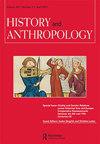好战的文化?阿兹特克世界的宗教与战争
IF 0.4
2区 历史学
Q3 ANTHROPOLOGY
引用次数: 3
摘要
特诺奇蒂特兰的阿兹特克-墨西哥人,按照他们自己的定义,是一个“好战”的文化,他们的集体身份与军事理想和行为密切相关。战争的价值在社会的每一个层面都被戏剧化和重演,他们共同的战士身份被男人和女人广泛理解。这也是一种宗教和超自然现象深深植根于信仰和行为的文化,几乎不可能将宗教活动与日常活动区分开来。试图“合理化”中美洲人的战争方式,往往源于一种值得称赞的愿望,即揭开土著文化的神秘面纱,认识到他们的复杂性,驳斥对迷信和野蛮的指责。但是,任何将宗教与实践分离的尝试都会剥夺阿兹特克结构中学者们试图灌输的逻辑。对墨西哥的土著人民来说,宗教是理性的:它提供了解释、动机、结构和身份。一个人不会仅仅因为宗教原因而去打仗,而是在一个物理和形而上学交织在一起的宇宙中进行推理和决策的过程。对阿兹特克人来说,战争是为神服务的神圣行为。他们把自己塑造成战士,不仅是有形的,而且是历史的、神话的和隐喻的。战争与特诺奇蒂特兰的信仰密不可分,只有在阿兹特克人自己的参照系中看待他们,赋予他们的仪式和历史价值和意义,我们才能理解宗教与战争在他们对宇宙的拥抱和积极愿景中的结合。本文章由计算机程序翻译,如有差异,请以英文原文为准。
A warlike culture? Religion and war in the Aztec world
ABSTRACT The Aztec-Mexica people of Tenochtitlan were, by their own definition, a ‘warlike’ culture, their collective identity closely tied to military ideals and behaviours. The values of war were dramatized and re-enacted at every level of society, and their shared warrior identity was widely understood by both men and women. This was also a culture in which religion and the supernatural were so deeply embedded in belief and behaviour that it is almost impossible to distinguish religious practice from everyday activities. Attempts to ‘rationalize’ Mesoamerican approaches to warfare often stem from a laudable desire to demystify Indigenous cultures, to recognize their sophistication, and to refute accusations of superstition and savagery. But any attempt to disentangle religion from practice deprives Aztec structures of the very logic scholars seek to instil. For the Indigenous peoples of Mexico, religion was rational: it provided explanations, motivations, structures and identities. One did not go to war solely for religious reasons, but the process of reasoning, of decision making, occurred within a universe in which the physical and metaphysical were interwoven. For the Aztecs, warfare was a sacred act performed in the service of the gods. They framed themselves as warriors, not only in tangible terms, but historically, mythically and metaphorically. Warfare was inextricable from belief in Tenochtitlan, and only by seeing the Aztecs within their own frame of reference, giving value and meaning to their rituals and histories, can we understand the conjunction of religion and war in their embracing and active vision of the cosmos.
求助全文
通过发布文献求助,成功后即可免费获取论文全文。
去求助
来源期刊

History and Anthropology
Multiple-
CiteScore
1.80
自引率
0.00%
发文量
41
期刊介绍:
History and Anthropology continues to address the intersection of history and social sciences, focusing on the interchange between anthropologically-informed history, historically-informed anthropology and the history of ethnographic and anthropological representation. It is now widely perceived that the formerly dominant ahistorical perspectives within anthropology severely restricted interpretation and analysis. Much recent work has therefore been concerned with social change and colonial history and the traditional problems such as symbolism, have been rethought in historical terms. History and Anthropology publishes articles which develop these concerns, and is particularly interested in linking new substantive analyses with critical perspectives on anthropological discourse.
 求助内容:
求助内容: 应助结果提醒方式:
应助结果提醒方式:


